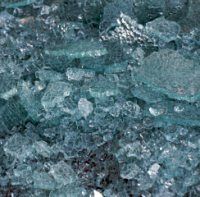

Latest research has found that it is likely we have underestimated the levels of microplastic pollution in our oceans.
In a recent study scientists trawled waters off the UK and US coast and discovered many more particles using a fine mesh net than a coarser one usually used to filter microplastics. Based on levels they found they suggest that the amount of microplastic particles in our oceans are at least double the amount we previously thought.
The smaller particles they found increase the range of global estimates for surface microplastics from 5-50 trillion up to 12-125 trillion particles. This data suggests that there may be more microplastic particles in our oceans than zooplankton.
It is widely known how harmful plastic pollution is to marine life, affecting fertility, growth and their survival. This discovery is particularly important because smaller particles of plastics are especially concerning. Microplastic particles are the same size as the food eaten by zooplankton, which are the corner stone to the marine food chain and play a vital role in regulating global climate.
Professor Pennie Lindeque, of the Plymouth Marine Laboratory in the UK, who led the research said: ''The estimate of marine microplastic concentration could currently be vastly underestimated. There may well be even smaller particles than those caught by the fine mesh nets, meaning the numbers could be even larger again''.
There are many new studies showing the harm caused by microplastics entering the food chain. We are now finding greater quantities of microplastics than ever before. Microplastics have caused pollution world-wide, from oceans, mountain soils and even in Arctic snow. It is not just the marine life that is impacted by its presence, as humans too are consuming and inhaling microplastics.
Whilst we know how damaging microplastics can be within the marine food chain, the health impacts for humans and certain other species are still unknown. Whilst only time will tell how truly harmful microplastic pollution can be, it is important not to wait to address this issue and for every effort to be made to prevent and reduce the amount of plastics waste produced to minimise the impact on both the environment and our health.